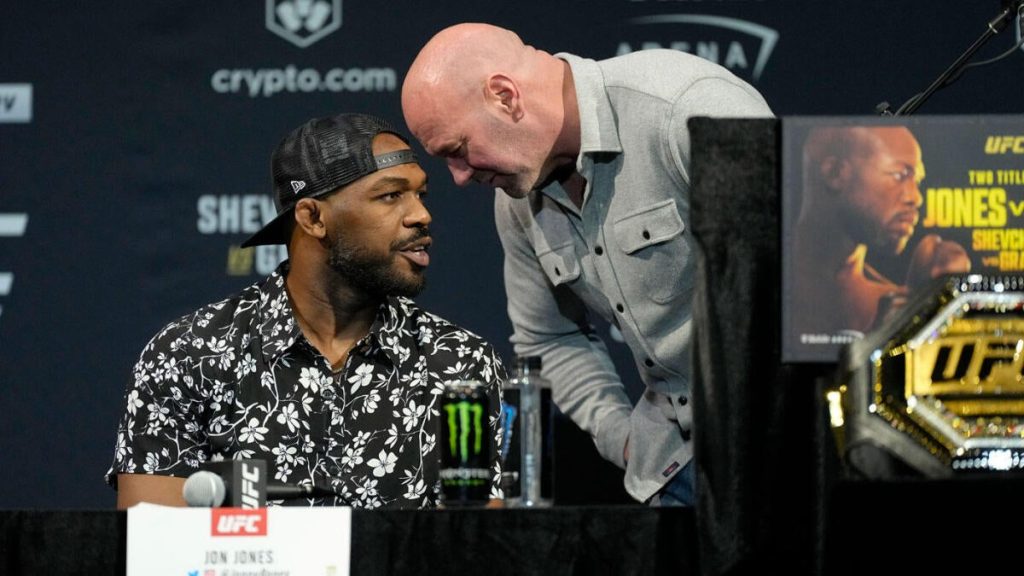Jones Exits the Cage
Jon Jones, the second-longest reigning heavyweight champion in UFC history, has consistently avoided a match with interim titleholder Tom Aspinall. Today marks 840 days since Jones became a two-division champion by defeating Cyril Gane for the vacant heavyweight title, and UFC president Dana White has finally acknowledged this reluctance.
In a surprising turn of events, White announced on Saturday that the 37-year-old Jones has decided to retire, despite the lucrative opportunity for a unification fight against Aspinall that has been in the works for over two years.
Unlike previous high-profile retirements in the UFC, White’s announcement lacked celebratory fanfare or highlights of Jones’ storied 17-year career. It was revealed late at night, following a post-fight press conference after UFC’s first event in Baku, Azerbaijan.
During the announcement, White appeared visibly unhappy but composed as he confirmed Aspinall’s elevation to undisputed champion. The decision came after a prolonged period where the heavyweight division was largely stalled, thanks to Jones’ status as the pound-for-pound best.
When asked about any regrets regarding the situation, White stated, “If you look at what [Jones] accomplished in this sport, no. It is what it is.” The repercussions of Jones’ retirement seem to serve as a catalyst for frustrated UFC fans who have silently dealt with subpar matchmaking and exorbitant ticket prices amid ongoing negotiations for a new broadcasting deal.
The blame for this situation is not solely on one party. Jones could have stepped back following his injury after defeating Gane, leading to a 20-month layoff in which he retained his title. He could have also stepped aside when the UFC allowed a questionable title defense against a past champion. Instead, he perpetuated a facade that the fight with Aspinall was imminent.
Historical context shows that similar situations have occurred before, such as when inaugural women’s champions were stripped for not defending their titles. Just as in past instances where the UFC has enabled fighters, they allowed Jones to dictate his own terms, disrupting the heavyweight division and delaying the futures of top contenders.



